News
-
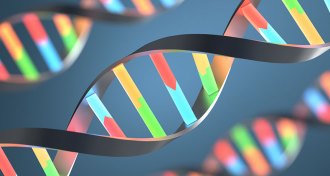 Genetics
GeneticsGenetic diversity data offers medical benefits
Study of protein-producing DNA narrows down disease-causing genetic variants.
-
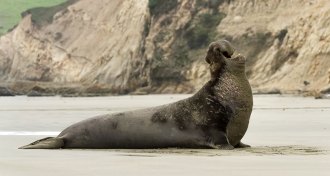 Health & Medicine
Health & MedicineWhen it comes to antimicrobial resistance, watch out for wildlife
Focusing on antimicrobial resistance in hospitals and farms misses a big and not well understood part of the issue: wildlife.
By Susan Milius -
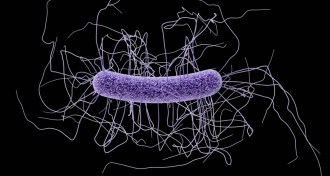 Life
LifeGenes that control toxin production in C. difficile ID’d
Pinpointing the genes behind Clostridium difficile toxin production could help researchers disarm the superbug without killing “good” bacteria.
-
 Astronomy
AstronomyAstronomers prepare for 2017 solar eclipse spectacle
With one year to go, researchers are making plans for studying both the sun and Earth during the August 2017 total solar eclipse.
-
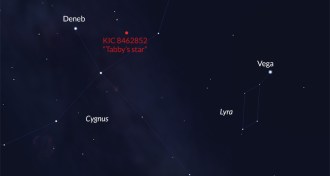 Astronomy
AstronomyTabby’s star drama continues
Tabby’s star, already known for its bizarre flicking and fading, dimmed throughout the four years of Kepler’s primary mission.
-
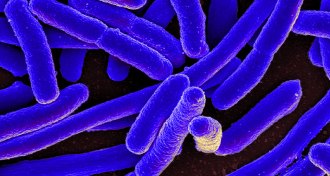 Life
Life‘Promiscuous’ enzymes can compensate for disabled genes
Promiscuous enzymes can step in when bacteria lose genes they need to function.
-
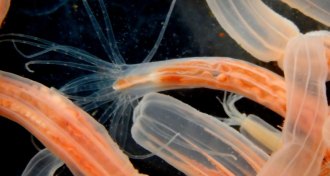 Animals
AnimalsAnemone proteins offer clue to restoring hearing loss
Proteins that sea anemones use to regenerate may help restore damaged hearing in mammals.
-
 Neuroscience
NeuroscienceSleep deprivation hits some brain areas hard
Brain scan study reveals hodgepodge effects of sleep deprivation.
-
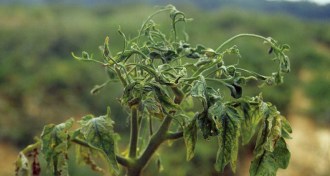 Plants
PlantsSneaky virus helps plants multiply, creating more hosts
Plant virus makes hosts more attractive to pollinators, ensuring future virus-susceptible plants.
-
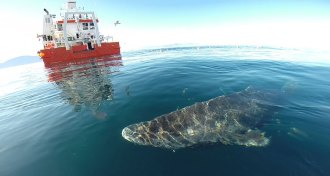 Animals
AnimalsStudy ranks Greenland shark as longest-lived vertebrate
Radiocarbon in eye lenses suggests mysterious Greenland sharks might live for almost 400 years.
By Susan Milius -
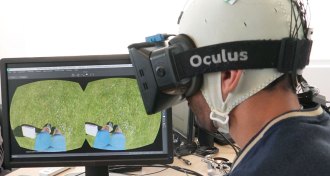 Neuroscience
NeuroscienceMix of brain training, physical therapy can help paralyzed patients
Long-term training with brain-machine interface helps people paralyzed by spinal cord injuries regain some feeling and function.
By Meghan Rosen -
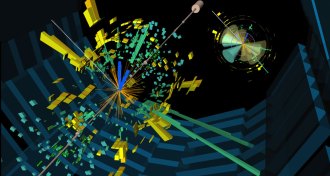 Particle Physics
Particle PhysicsNew data give clearer picture of Higgs boson
Scientists are carefully measuring the Higgs boson’s properties.